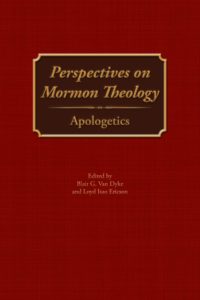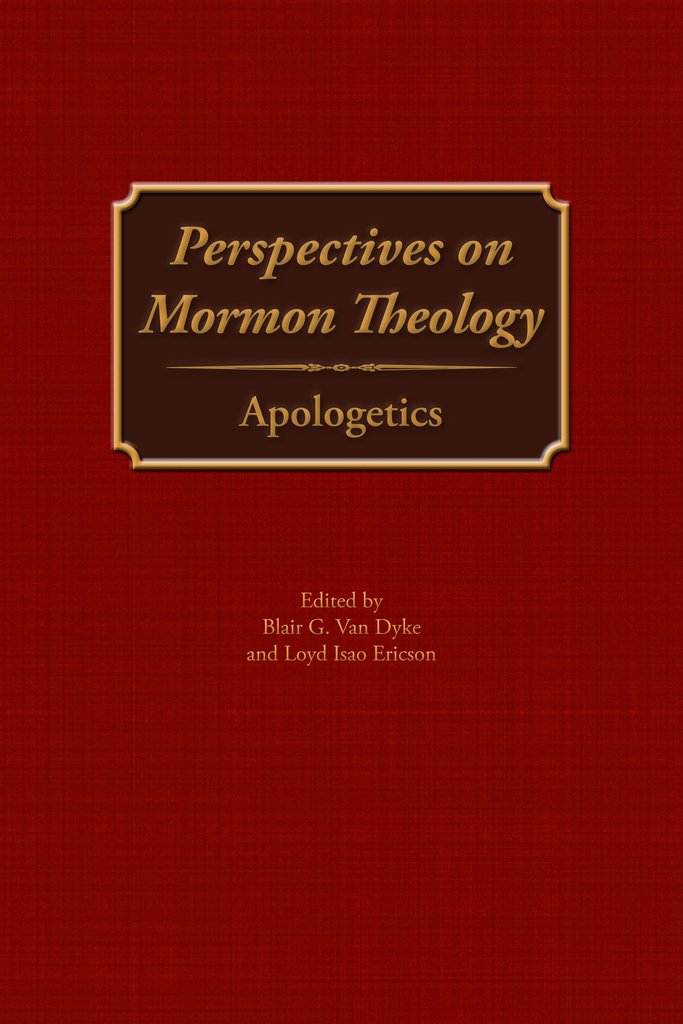 Doing “apologetics,” which means to “speak in defense,” has been a longstanding tradition within Christianity, including Mormonism. Some forms of apologetics are often labeled “negative,” meaning the attempt by those writing is foremost to take on the arguments of critics. “Positive” apologetics, on the other hand, is characterized as efforts to shore up some aspect of the gospel or church by means of sharing different angles on that issue or practice, or new, possibly larger, perspectives that frame that problem in a way that makes it more understandable as an action or teaching that comes from human foibles rather than a knock-down criticism of the Mormon enterprise as a whole. In this latter emphasis, apologists are acknowledging that an issue exists or a problem is brewing while seeking to show that Mormonism has within it resources for addressing the issue, and that these need only to be brought forward to meet the challenge.
Doing “apologetics,” which means to “speak in defense,” has been a longstanding tradition within Christianity, including Mormonism. Some forms of apologetics are often labeled “negative,” meaning the attempt by those writing is foremost to take on the arguments of critics. “Positive” apologetics, on the other hand, is characterized as efforts to shore up some aspect of the gospel or church by means of sharing different angles on that issue or practice, or new, possibly larger, perspectives that frame that problem in a way that makes it more understandable as an action or teaching that comes from human foibles rather than a knock-down criticism of the Mormon enterprise as a whole. In this latter emphasis, apologists are acknowledging that an issue exists or a problem is brewing while seeking to show that Mormonism has within it resources for addressing the issue, and that these need only to be brought forward to meet the challenge.
For many Latter-day Saints, apologetics has been a wonderful boon. They crave to know that scholars and others are actively working to provide framings for those things that have begun to trouble them. For many others, however, apologetics carries a negative connotation. Some say that truth “needs no defense,” or they point out that things of the Spirit are not going to yield well to questions and issues raised because of the findings of secular disciplines, hence on over emphasis on historical or rational inquiry is to make a category mistake. But more than anything else, the criticism labeled against apologetics focuses on the claim that an apologist works the question backwards: she or he knows the truth already, and then constructs arguments designed to shore that up; they are not conducting genuine inquiry.
In this episode, which is being co-released by both the Mormon Matters and Mormon Stories podcasts, Dan Wotherspoon and John Dehlin speak with Brian Birch and Patrick Mason about the history and development of Mormon Apologetics. Where has it been, and where is it headed now. In particular, John proposes a new term, “neo-apologist,” to describe a group of Latter-day Saint writers, including Mason, who, while not ignoring problems, seem to shift the meaning of various terms or truth claims, or in some other way change the definitions of Mormon doctrines. A vigorous discussion ensues!
_____
Link:
Blair G. Van Dyke and Loyd Isao Ericson, eds, Perspectives in Mormon Theology: Apologetics (Greg Kofford Books, 2017)


Comments 2
Well done. Fun episode. I would hope John Dehlin would like to become a member again should he be invited to do so.
I was sold that this was the one true church to which soul and life must be dedicated to… just like the temple instructs to do so.
I think we overreached when we said that this is the only true and living church, when we should be striving to make the one and only true and living church.
John and Dan,
A number of my family and close friends urge continued loyalty to the Church while at the same time expressing their belief in Church Doctrine the way Dan advocates in this podcast. Their position is that one can believe (and support) that the Church is guided by prophets (i.e., the only true church, God’s church, with authority from God) but that doesn’t mean you have to/should follow what they say unless the spirit confirms that you should do so and that sometimes those prophets get things wrong (ie., teach incorrect doctrine, don’t call men/women who would be called if God was really in charge). Stated differently, it is the idea that you can’t have black and white thinking. Sort of like the difference between the Liahonas and the Iron Rodders expressed in Sun Stone back in the 70s.
While I can see from experience that Dan’s view point is the way things actually work, it simply isn’t (black and white thinking) what is taught: Example from the primary song: “Now we have a world where people are confused. If you don’t believe it, go and watch the news. We can get direction all along our way, If we heed the prophets—follow what they say.” And then the lovely chorus! I don’t need to list the myriad scriptural quotes about the voice of my servants is the same as God; that if we follow the commandments that we’ll be blessed, that when the prophet speaks the thinking has been done, if you don’t follow the mission rules, you might be killed (Max Pinegar, 1978 MTC).
So Dan, I just don’t think you can stake the claim in what you believe without the requisite conclusion that what you believe is a different church, a different philosophy of men (don’t get me wrong…I believe you are right…I just don’t believe it is what Mormonism really teaches). If it really was God’s church and if he really was involved in the decisions that were made and the ideas that were taught, then the Spirit would confirm the same thing to everybody’s prayer regarding what was taught by the prophets (how could the spirit confirm to one person that they 10% on gross and 10% on net to another person; or, its okay to drink beer to one person, but it is wrong to drink beer to another person). Instead, lots of people have different ideas about what the Spirit confirms to them.
John and Dan, I think this debate should be pressed. It is absolutely critical because of the monumental life decisions that individuals make based on this issue.
John, I probably think like you and just cannot see how to make Mormonism work and to trust that it is God’s church without God really speaking to prophets and really revealing doctrine to them and really calling people to be prophets who he would really call etc. So, press the issue…I do not see how it can be both…I think the further and stronger debate of the positions is necessary. And as President Hinckley said: it is either true or the biggest fraud in the history of the world.